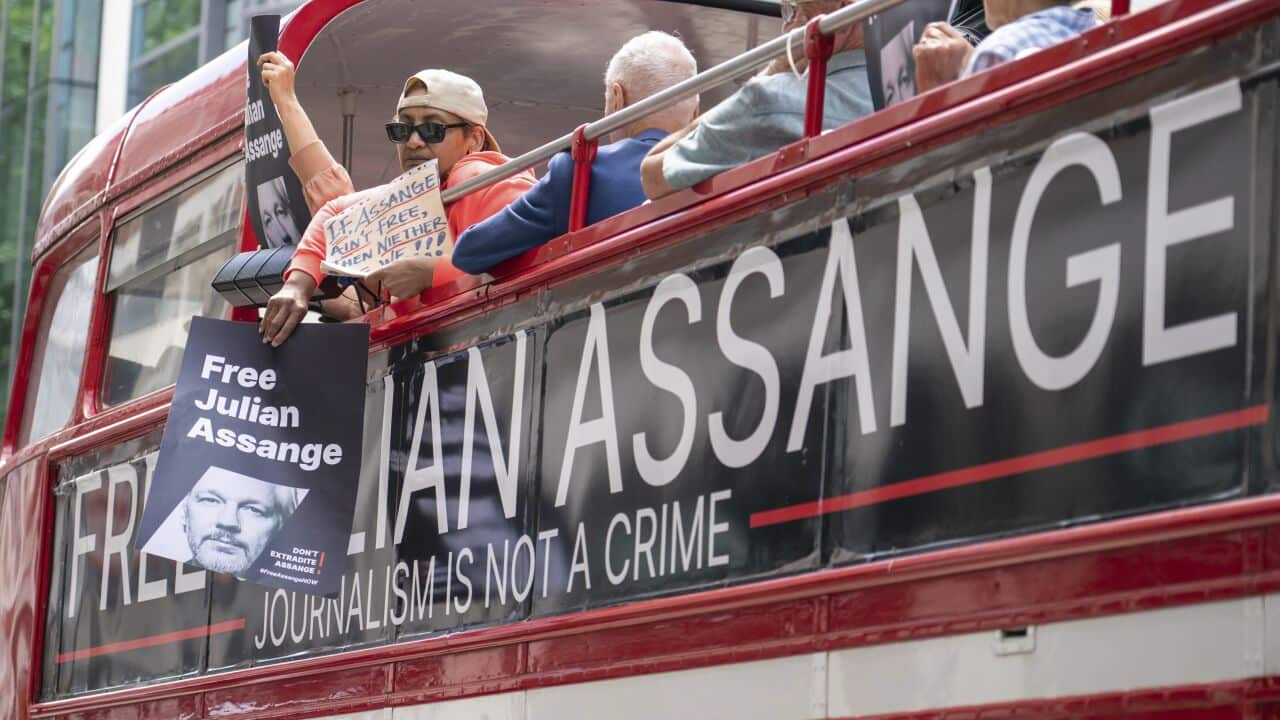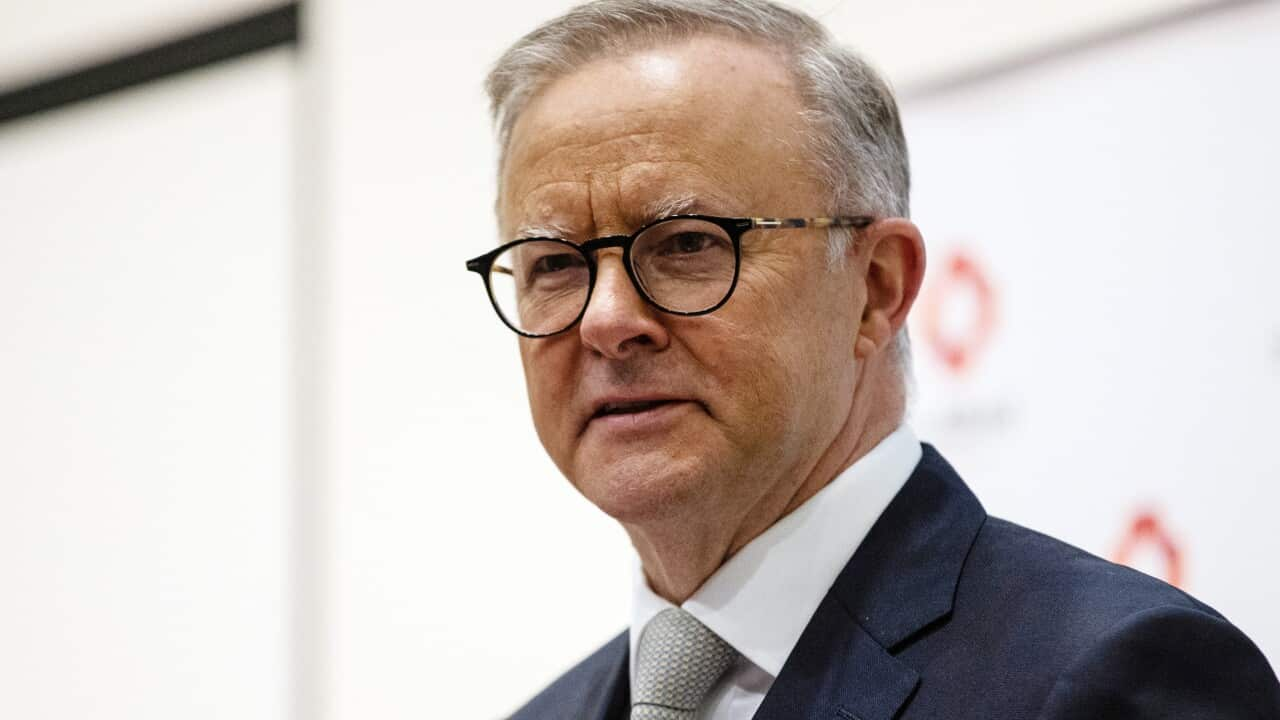Independent MP Andrew Wilkie has hit back at claims Australia had no legal grounds to intervene in the case of Julian Assange.
Mr Wilkie, a former intelligence analyst and a prominent advocate for Mr Assange, says the matter could be solved quickly at a political level.
"Governments and politicians have got to stop hiding behind the excuse of the Julian Assange matter being a legal matter," he told AAP.
"It has always been an intensely political matter."
The comments came after former attorney-general George Brandis said Australia had no legal grounds in Mr Assange's case.
"Australia wasn't a party to the proceedings and had no standing to intervene in the proceedings," Mr Brandis told the ABC.
"It was legal proceedings in a British court between the government of the United States and a private citizen. We would not intervene in those proceedings."
LISTEN TO

Government urged to push for Julian Assange's freedom
SBS News
22/06/202202:58
The WikiLeaks founder and Australian journalist has appealed to the High Court in London to block his extradition to the US to face criminal charges in the latest step of a legal battle that has dragged on for more than a decade.
Mr Assange, 50, is wanted by US authorities on 18 counts, including a spying charge, relating to WikiLeaks' release of vast troves of confidential US military records and diplomatic cables, which US officials have said put lives in danger.
Last month, UK Home Secretary Priti Patel approved his extradition, with her office saying UK courts had concluded his extradition would not be incompatible with his human rights, and that he would be treated appropriately.
However, Mr Wilkie said the matter could be solved with a phone call from Prime Minister Anthony Albanese to the US or UK.
"This has gone on long enough, it's time to put it to an end," he said.
"I don't doubt that Australia has enough influence to bring this to an end, we underestimate ourselves to think otherwise, and we are close allies of both countries."
The independent MP said he was still optimistic about there being a change in the outcome for Mr Assange following the change of government in Australia at May's federal election.
"We hold out hope that with a change of government we see some progress on this," Mr Wilkie said.
Mr Albanese has said he didn't see the purpose of the "ongoing pursuit" of Mr Assange.
But he said the government would deal with the matter through diplomatic channels.
Former foreign minister Bob Carr said on Friday the government should tell the US "the Australian people want the Assange extradition quietly set aside", just as the US had commuted the sentence of whistleblower Chelsea Manning.
Mr Brandis, who oversaw consular assistance for Mr Assange when he was Australia's high commissioner in London, said he had made a point for staff to always be made available to meet the journalist's "reasonable requests".
"I instituted a practice of writing to him every month to ask him if there was anything more he needed," Mr Brandis said.
"Most of those letters were unresponded to, but there has not been a complaint that I'm aware of, from Mr Assange or his surrogates, that the Australian High Commission did not provide an appropriate level of consular support."











